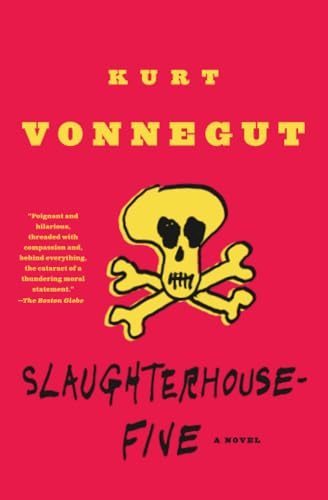The Fantasy and Science Fiction/Theory Reading Group 2008
Explore top fantasy and sci-fi books with the 2008 Fantasy and Science Fiction/Theory Reading Group. Dive into curated lists of must-read novels and thought-provoking theory works for enthusiasts.

Book
The Historian
by Elizabeth Kostova
An "innovative" (The New Yorker) retelling of the story of Dracula. Told with the flourish and poise of a talented storyteller, Kostova turns the age-old tale into a compelling "late night page-turner" (San Francisco Chronicle) When a young woman discovers a cache of ancient letters, she is thrown into the turbulent history of her parents' dark pasts. Uncovering a labyrinthine trail of clues, she begins to reconstruct a staggering history of deceit and violence. Debut novelist Elizabeth Kostova creates an adventure of monumental proportions, a relentless tale that blends fact and fantasy, history and the present, with an assurance that is almost unbearably suspenseful and utterly unforgettable.


Book
Linger Awhile
by Russell Hoban
Irving Goodman, self-confessed dirty old man, is 83 years old and has just fallen in love. Unfortunately, Justine Trimble, star of 1950s cowboy B-movies, has been dead for 47 years. He saw her first in "Last Stage to El Paso", a lowlife black-and-whie Western, and has been unable to think of anything else since. Desperate, Goodman invokes the help of his old friend, Istvan Fallock, to see if they can't somehow coax a videotape to yield the 25-year-old Justine. So with a test tube, distillation of frog, a soupcon of primordial soup mixed with a suspension of disbelief, they summon her back to life. And to their surprise and consternation, she materializes. As a reward for lust and hubris, Irving gets a lot more than the affection and attention he'd bargained for. Thus beings an amazing tale of murder and mayhem in contemporary London, where sexy vampire cowgirls run amok, chased by men old enough to know better.


Book
Bone
by Jeff Smith
Three modern cartoon cousins get lost in a pre-technological valley, spending a year there making new friends and out-running dangerous enemies, in a compilation of the creator's Bone series all in one binding.

Book
The Road
by Cormac McCarthy
In a novel set in an indefinite, futuristic, post-apocalyptic world, a father and his young son make their way through the ruins of a devastated American landscape, struggling to survive and preserve the last remnants of their own humanity.


Book
Operation Red Jericho
by Joshua Mowll
This first of three tales begins the story of a sister and brother, who while searching for their missing parents in 1920s Shanghai, uncover a mysterious secret society. Includes maps, documents, four full-color gatefolds, and extensive appendices and notes.

Book
Slaughterhouse-Five
by Kurt Vonnegut
Kurt Vonnegut’s masterpiece, Slaughterhouse-Five is “a desperate, painfully honest attempt to confront the monstrous crimes of the twentieth century” (Time). Selected by the Modern Library as one of the 100 best novels of all time • One of The Atlantic’s Great American Novels of the Past 100 Years Slaughterhouse-Five, an American classic, is one of the world’s great antiwar books. Centering on the infamous World War II firebombing of Dresden, the novel is the result of what Kurt Vonnegut described as a twenty-three-year struggle to write a book about what he had witnessed as an American prisoner of war. It combines historical fiction, science fiction, autobiography, and satire in an account of the life of Billy Pilgrim, a barber’s son turned draftee turned optometrist turned alien abductee. As Vonnegut had, Billy experiences the destruction of Dresden as a POW. Unlike Vonnegut, he experiences time travel, or coming “unstuck in time.” An instant bestseller, Slaughterhouse-Five made Kurt Vonnegut a cult hero in American literature, a reputation that only strengthened over time, despite his being banned and censored by some libraries and schools for content and language. But it was precisely those elements of Vonnegut’s writing—the political edginess, the genre-bending inventiveness, the frank violence, the transgressive wit—that have inspired generations of readers not just to look differently at the world around them but to find the confidence to say something about it. Authors as wide-ranging as Norman Mailer, John Irving, Michael Crichton, Tim O’Brien, Margaret Atwood, Elizabeth Strout, David Sedaris, Jennifer Egan, and J. K. Rowling have all found inspiration in Vonnegut’s words. Jonathan Safran Foer has described Vonnegut as “the kind of writer who made people—young people especially—want to write.” George Saunders has declared Vonnegut to be “the great, urgent, passionate American writer of our century, who offers us . . . a model of the kind of compassionate thinking that might yet save us from ourselves.” More than fifty years after its initial publication at the height of the Vietnam War, Vonnegut’s portrayal of political disillusionment, PTSD, and postwar anxiety feels as relevant, darkly humorous, and profoundly affecting as ever, an enduring beacon through our own era’s uncertainties.

Book
Bridge of Birds
by Barry Hughart
“Li Kao may have a slight flaw in his character but the book has none. I recommend it unconditionally and I predict Barry Hughart has quite a future as a fantasy writer.”—Anne McCaffrey When the children of his village were struck with a mysterious illness, Number Ten Ox sought a wiseman to save them. He found master Li Kao, a scholar with a slight flaw in his character. Together they set out to find the Great Root of Power, the only possible cure. The quest led them to a host of truly memorable characters, multiple wonders, incredible adventures—and strange coincidences which were really not coincidences at all. And it involved them in an ancient crime that still perturbed the serenity of Heaven. Simply and charmingly told, this is a wry tale, a sly tale, and a story of wisdom delightfully askew. Once read, its marvels and beauty will not easily fade from the mind. The author claims that this is a novel of an ancient China that never was. But, oh . . . it should have been!
